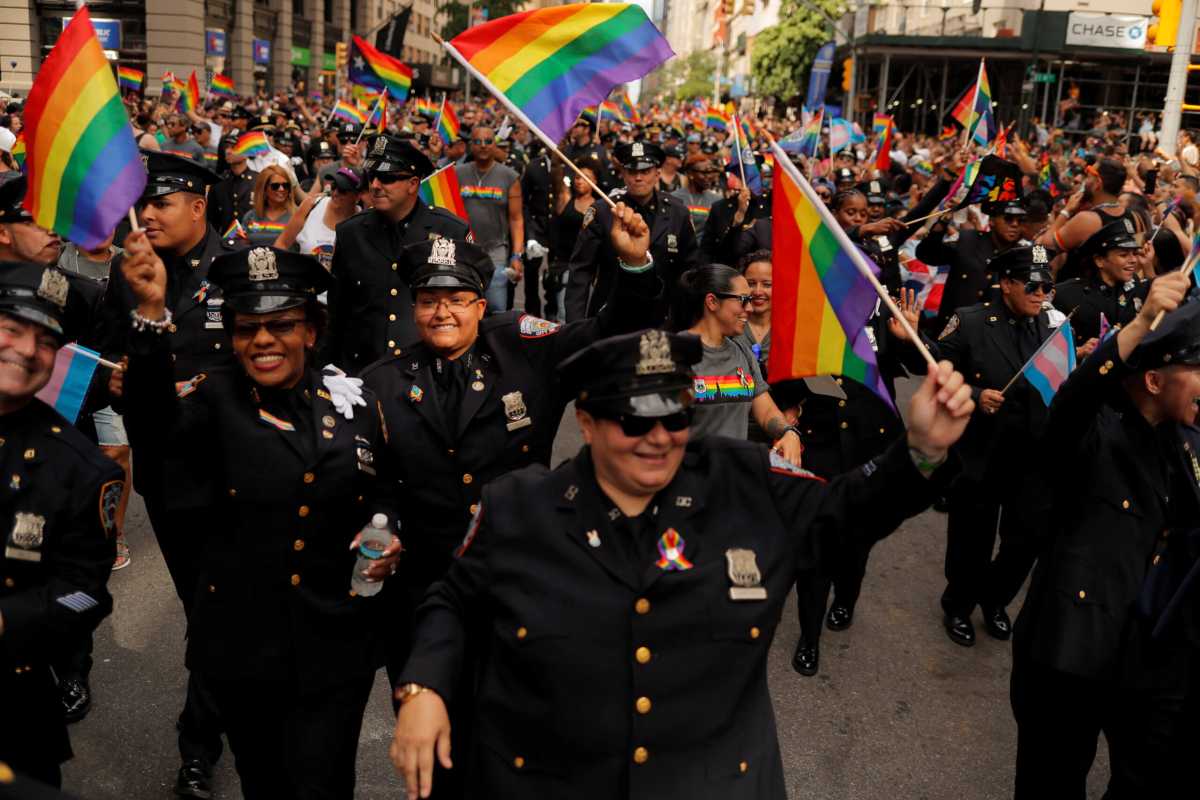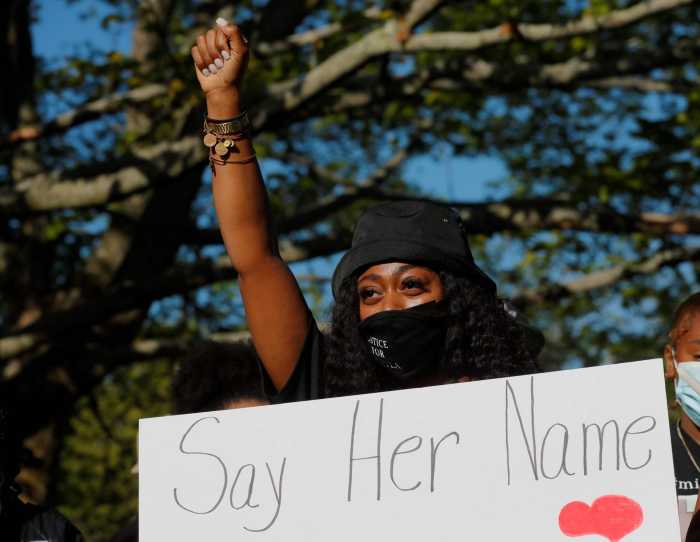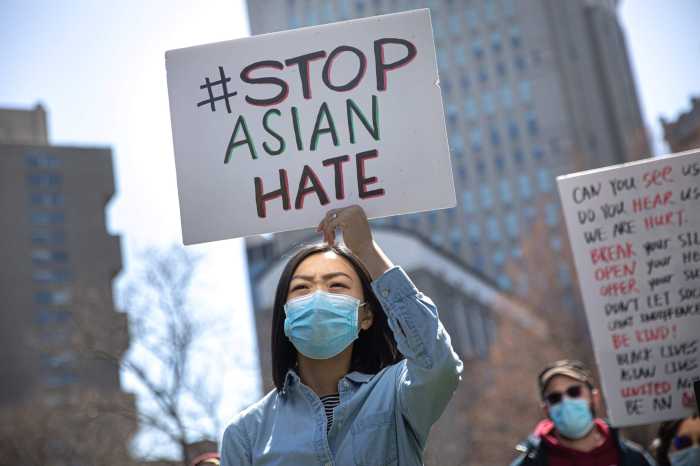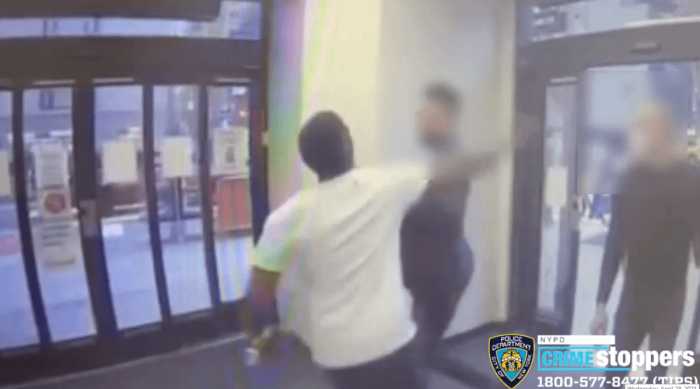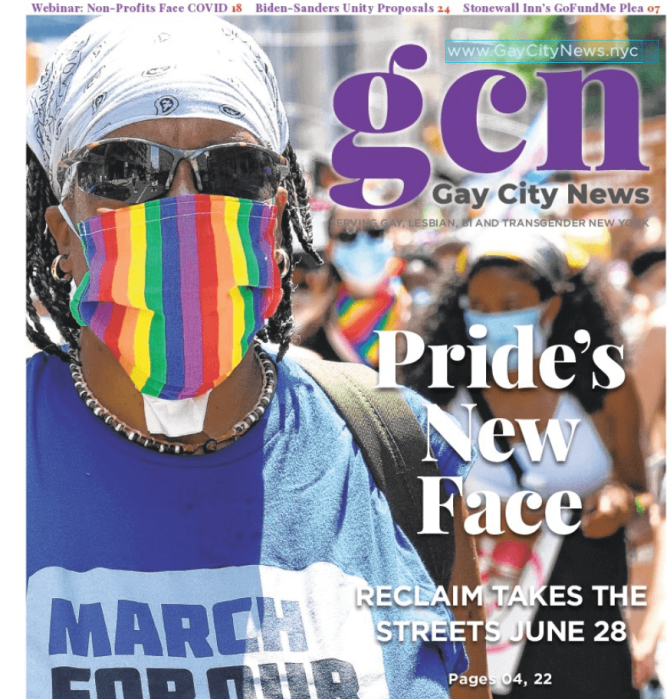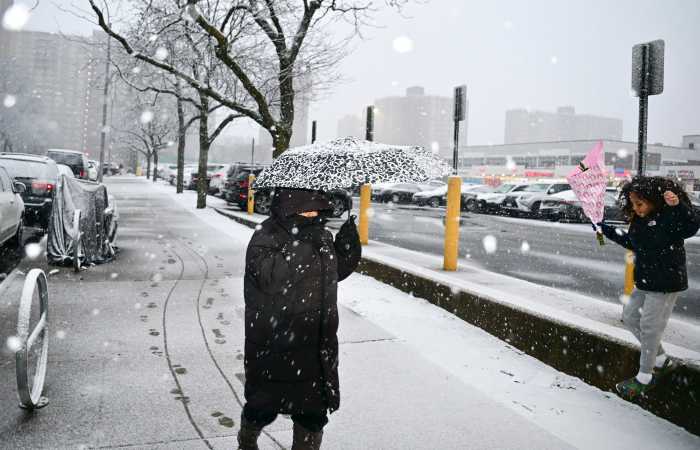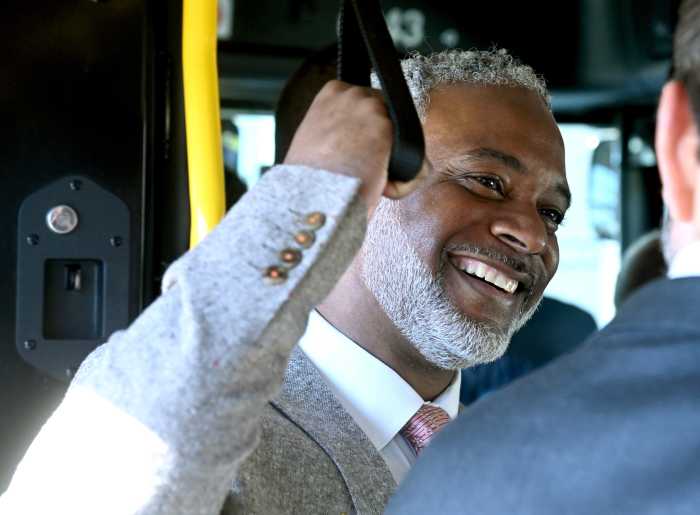Following years of pressure from activists, Heritage of Pride (HOP), or NYC Pride, will ban police contingents from their Pride march and related events through at least 2025.
Law enforcement and correction officers will not be allowed to have contingents in the annual march hosted by HOP and the NYPD will be barred from speaking at HOP events or using their platform.
HOP is also “taking steps” to reduce the police presence overall — though the NYPD is still vowing to work at the events. In a press release, HOP vowed to “take steps” to keep cops at least one block away from events “where possible” and stressed that the NYPD is not required to lead first response and security at their events. Rather, HOP is boosting their security budget to ramp up an independent first response emergency plan featuring private security and safety volunteers equipped with de-escalation training.
HOP explained the changes by acknowledging the need to create safer spaces for the community in light of the escalation of violence against people of color and transgender individuals. HOP pointed to the police brutality targeting marginalized communities, including people of color and LGBTQ folks.
“This announcement follows many months of conversation and discussion with key stakeholders in the community,” NYC Pride co-chair André Thomas said in a written statement. “We would like to extend our thanks to the Anti-Violence Project, which provided invaluable advice and counsel to help us take these important steps. We are also grateful for the contributions of David J. Johns, executive director of the National Black Justice Coalition; Shijuade Kadree, principal and founder, Compass Strategies Consulting, LLC; and Devin Norelle, model, advocate, and writer, for their guidance in helping to inform these changes.”
In a statement to Gay City News on May 15, the NYPD said officers would nonetheless be working at Pride events, saying “we’ll still be there to ensure traffic safety and good order during this huge, complex event.”
The changes drew sharp criticism from the Gay Officers Action League (GOAL), which slammed HOP in a statement.
“Heritage of Pride is well aware that the city would not allow a large scale event to occur without police presence,” GOAL president Brian Downey said in a written statement. “So their response to activist pressure is to take the low road by preventing their fellow community members from celebrating their identities and honoring the shared legacy of the Stonewall Riots. It is demoralizing that Heritage of Pride didn’t have the courage to refer to GOAL by name in its announcement, referring to us only as ‘Law Enforcement Exhibitors.’ The label is not only offensive but dehumanizing for our members.”
HOP, which shifted to a virtual format last year, is again holding a virtual event on June 27 but is also planning on hosting “to-be-determined in-person elements.”
While it is yet to be seen how the new changes will unfold, HOP’s announcement is significant — and, to many, long overdue — after activists felt that HOP had strayed too far from the original purpose of the annual Pride march, which stems from the 1970 Christopher Street Liberation Day March on the one-year anniversary of the 1969 Stonewall Uprising when LGBTQ folks fought back against police. In addition to the police presence at HOP’s march, activists have voiced frustration over the role of corporations as well as other policies, such as registration requirements.
The frustration surrounding HOP contributed to the formation of the Reclaim Pride Coalition’s Queer Liberation March, which bans police, corporations, and politicians from participating. The third annual Queer Liberation March is slated for June 27 at 3 p.m.
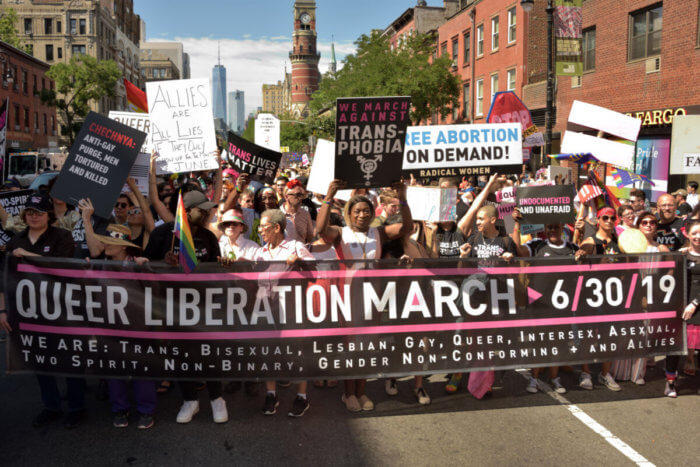
“After we issued demands to them in the summer of 2018, they’re finally listening — three years later,” Jay W. Walker of the Reclaim Pride Coalition told Gay City News on May 15. “We’ll see what happens, but as far as I know, the Heritage of Pride Parade is still going to be awash in corporatism and we’ll have to see whether they remember that Pride is about the rights of the LGBTQIA communities that march in it.”
Walker said the coalition wonders whether HOP will eliminate the NYPD’s control over the route of their parade as well as the barricades along the route. He further said he is not sure how HOP would reduce the police presence.
“I wonder how they think they’re going to be able to effectively do that,” he said.
STARR, which outlined demands for reform in a letter to HOP and city officials earlier this year, noted that the announcement came at a time of criticism surrounding HOP.
“As pleased as STARR and I’m sure Marsha’s family is to see the press coverage regarding HOP’s public comments and actions with regard to the NYPD being kept out of Pride, we find the timing and sentiment ironic,” said Mariah Lopez, STARR’s executive director, who predicts that Black and trans folks will increasingly lead Pride festivities.
The criticism surrounding police at Pride intensified even more last year in the wake of the nationwide protests against police brutality and racism. In June of last year, LGBTQ folks were beaten in Manhattan after holding a march at Stonewall to protest deadly violence targeting transgender individuals. Most recently, the NYPD roughed up protesters at the weekly Stonewall protests condemning police brutality and violence against trans individuals. At Columbus Circle on April 22, video footage showed officers shoving protesters with batons and pushing them to the ground.
Furthermore, the ban on correction officers comes two years after Layleen Xtravaganza Cubilette-Polanco, an Afro-Latinx trans woman, was neglected by guards at Rikers and died in 2019 after suffering a medical emergency. That same year, Kawaski Trawick, an out queer man, was shot and killed by police officers in his own home in the Bronx.
Last year the Queer Liberation March served as the city’s only in-person Pride march on the final Sunday in June and attracted tens of thousands of attendees throughout the first two marches.
To sign up for the Gay City News email newsletter, visit gaycitynews.com/newsletter.

